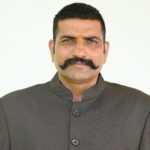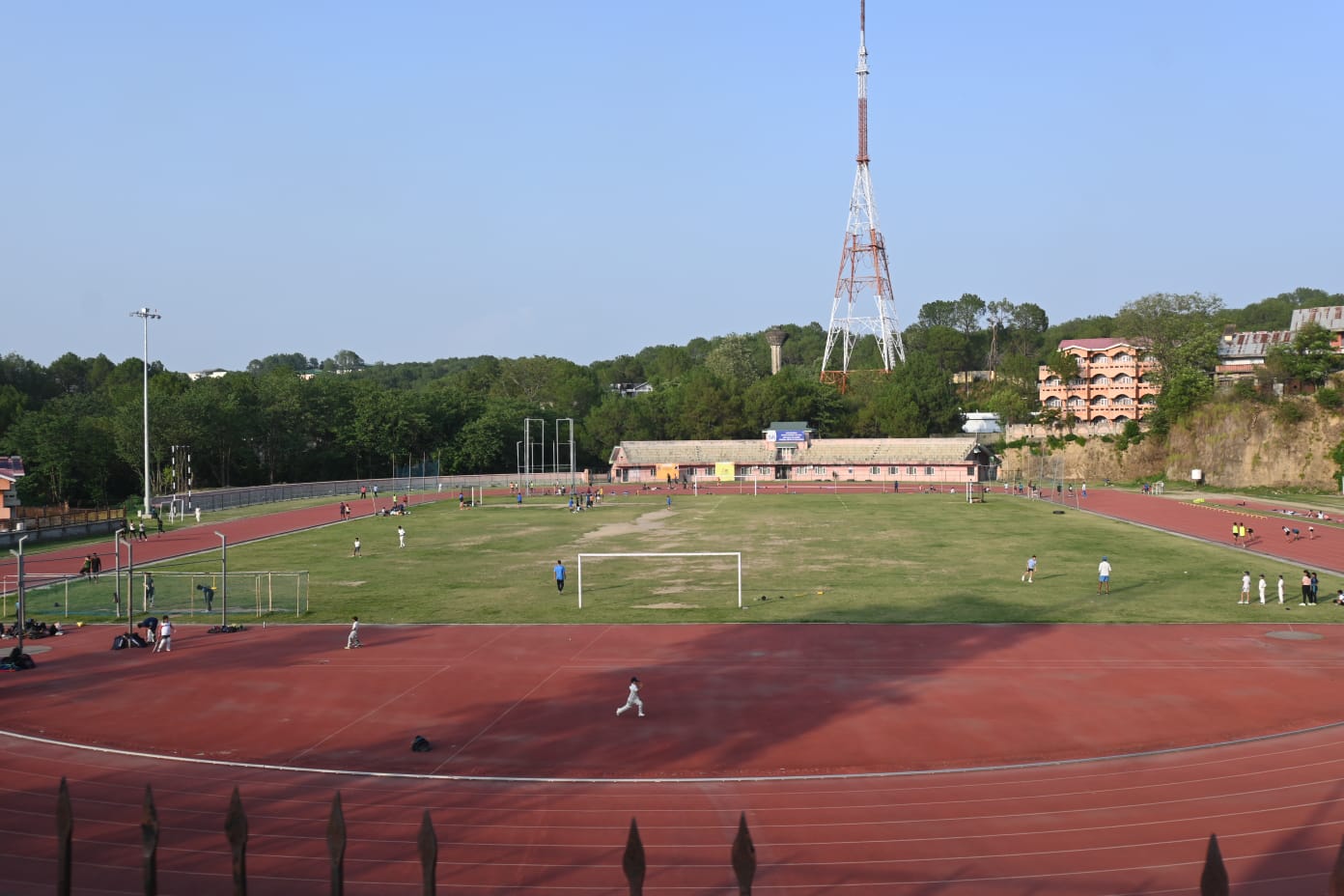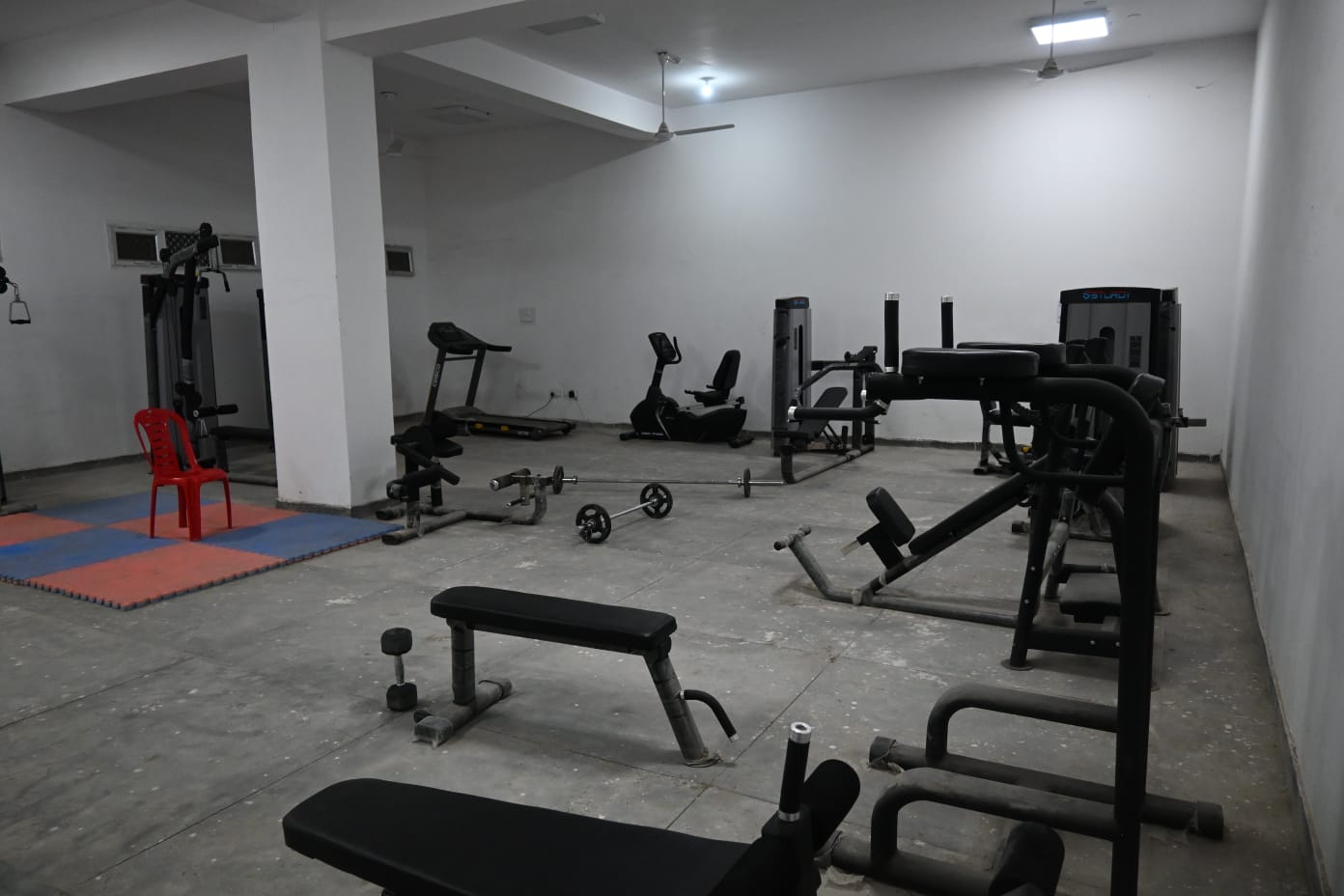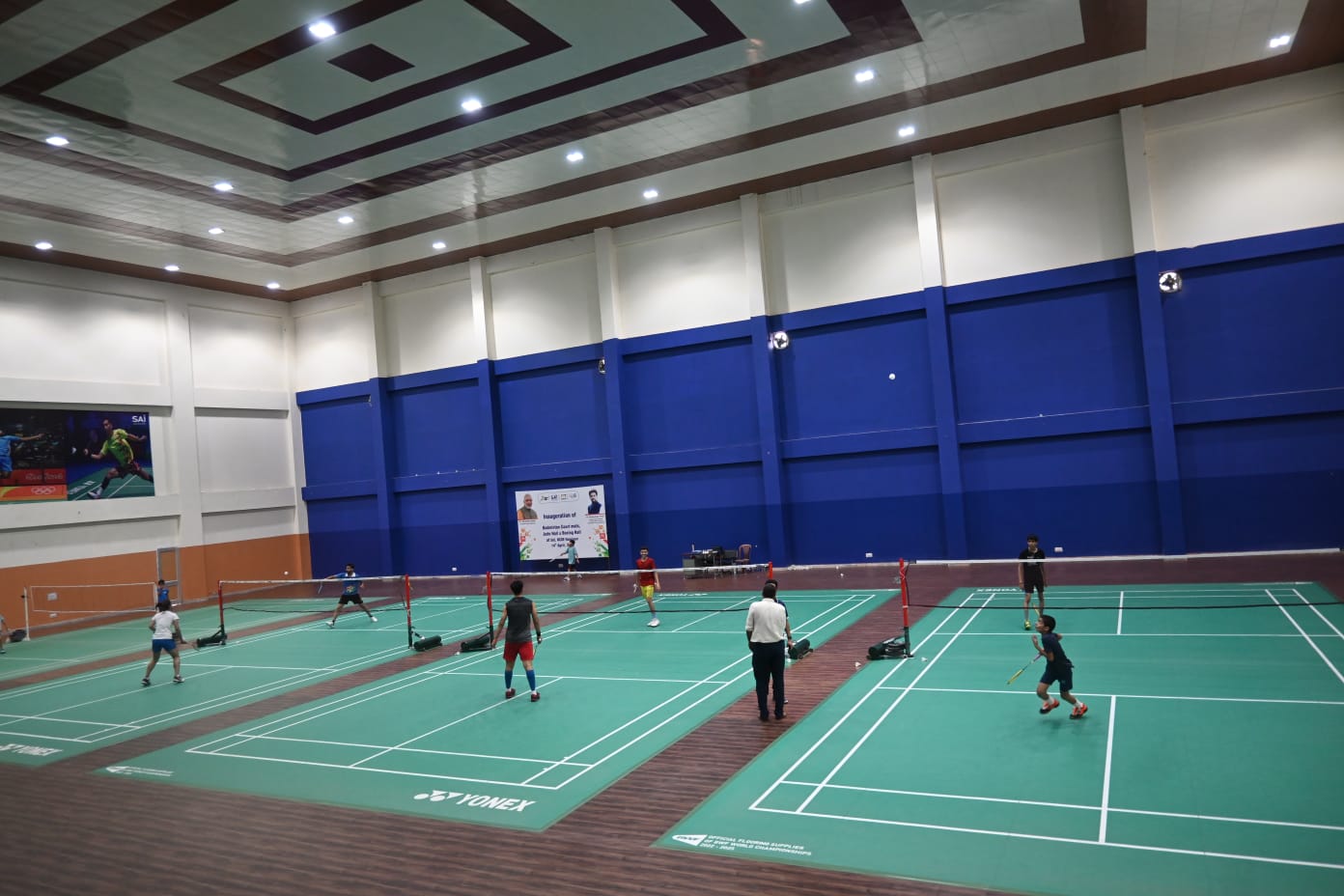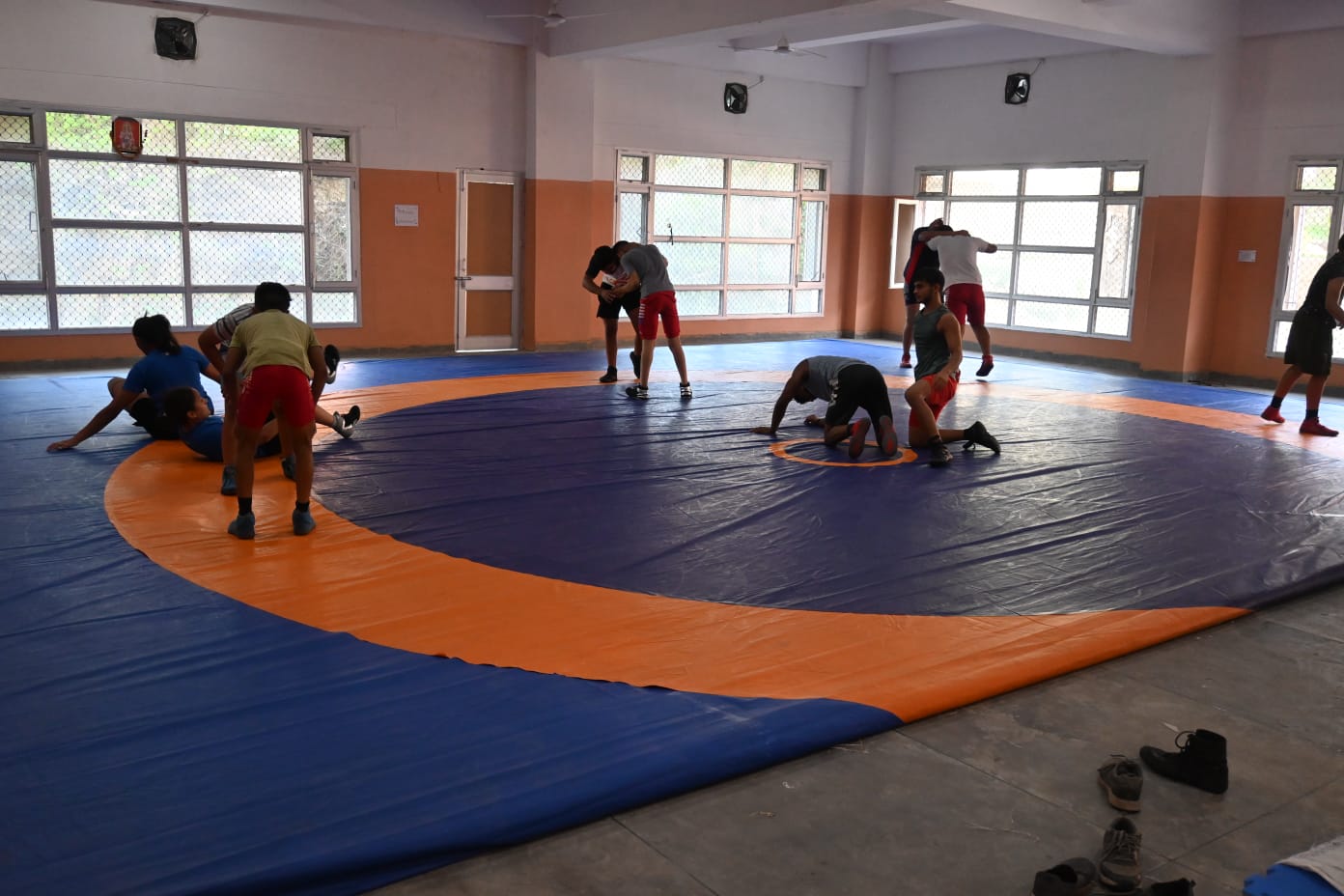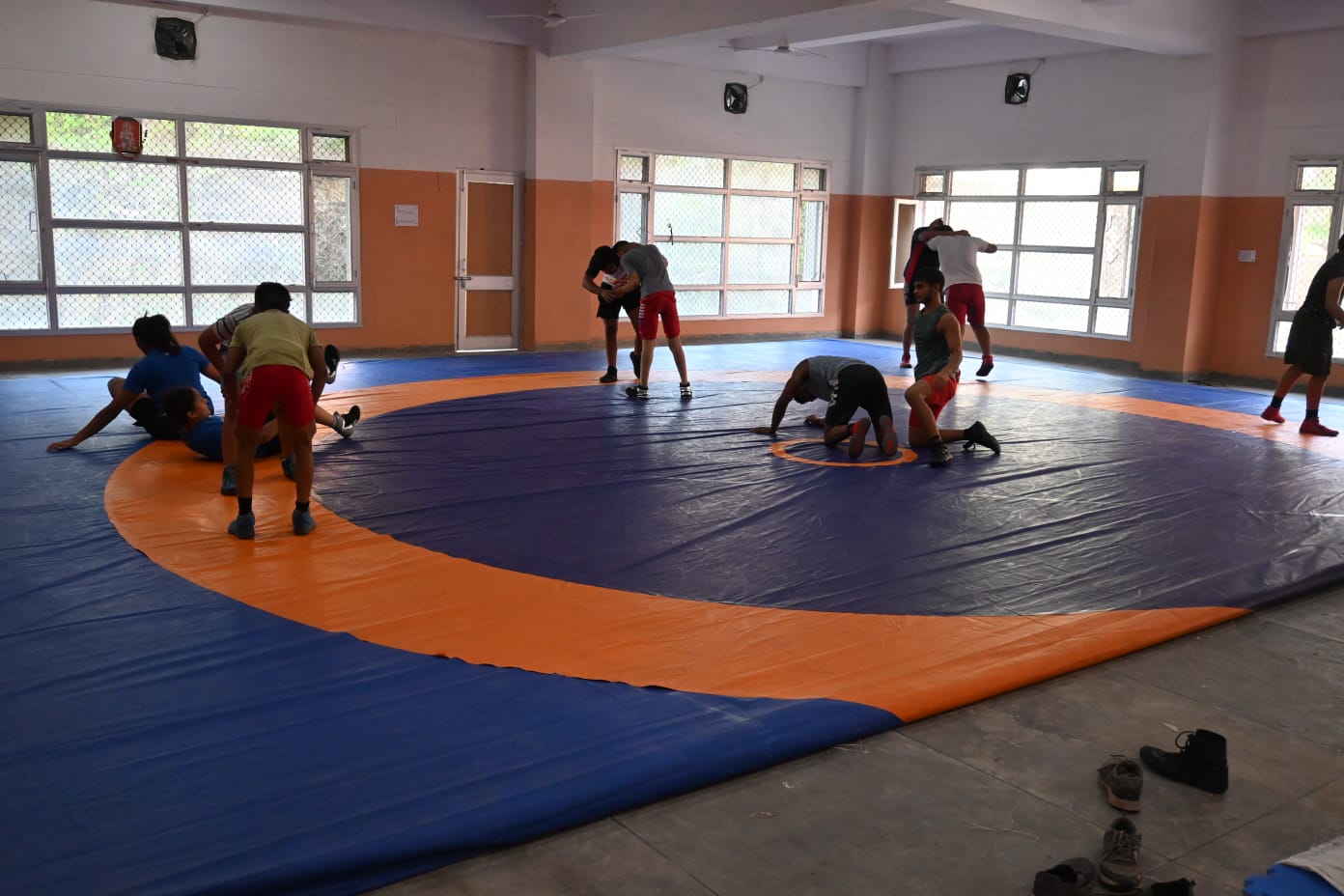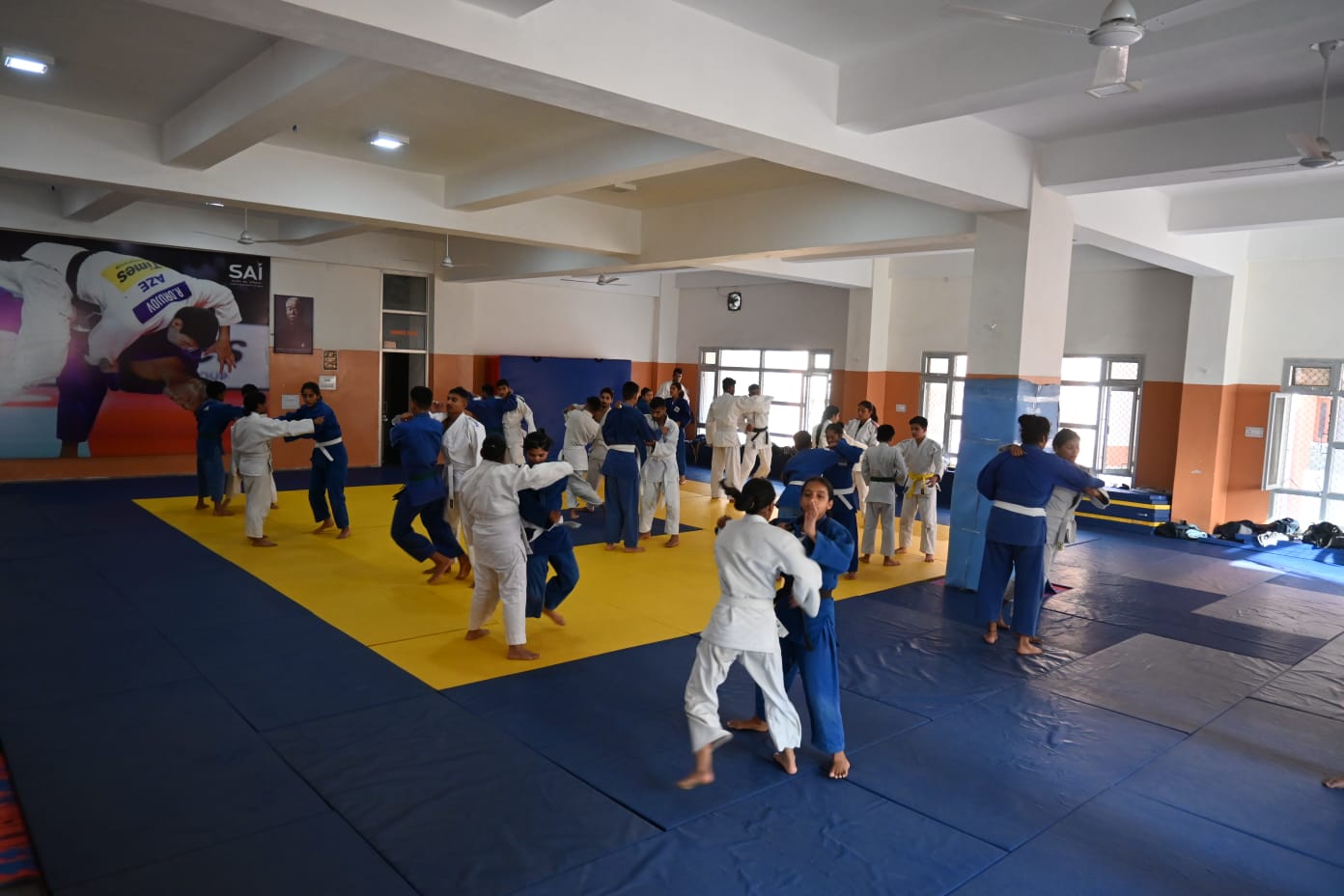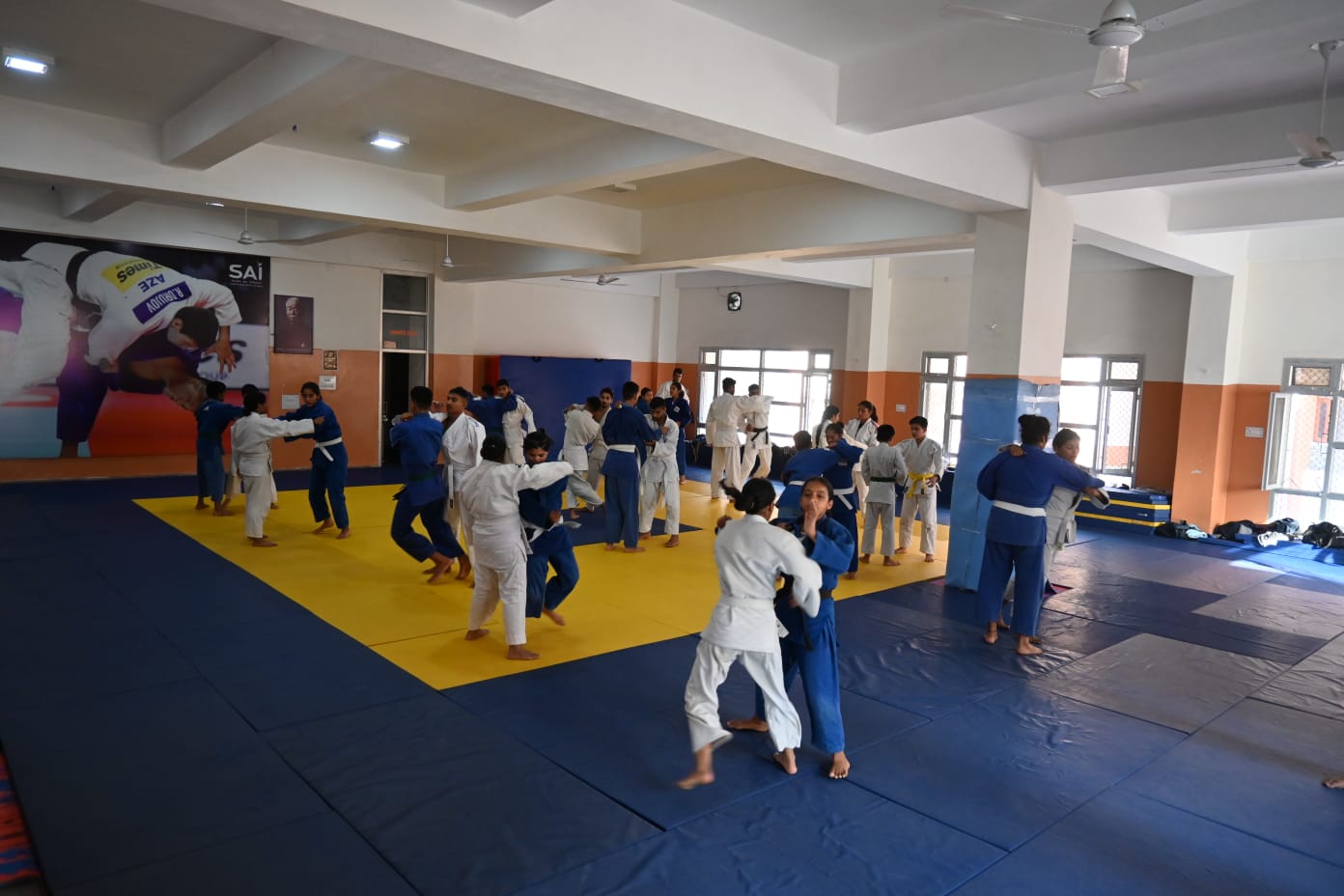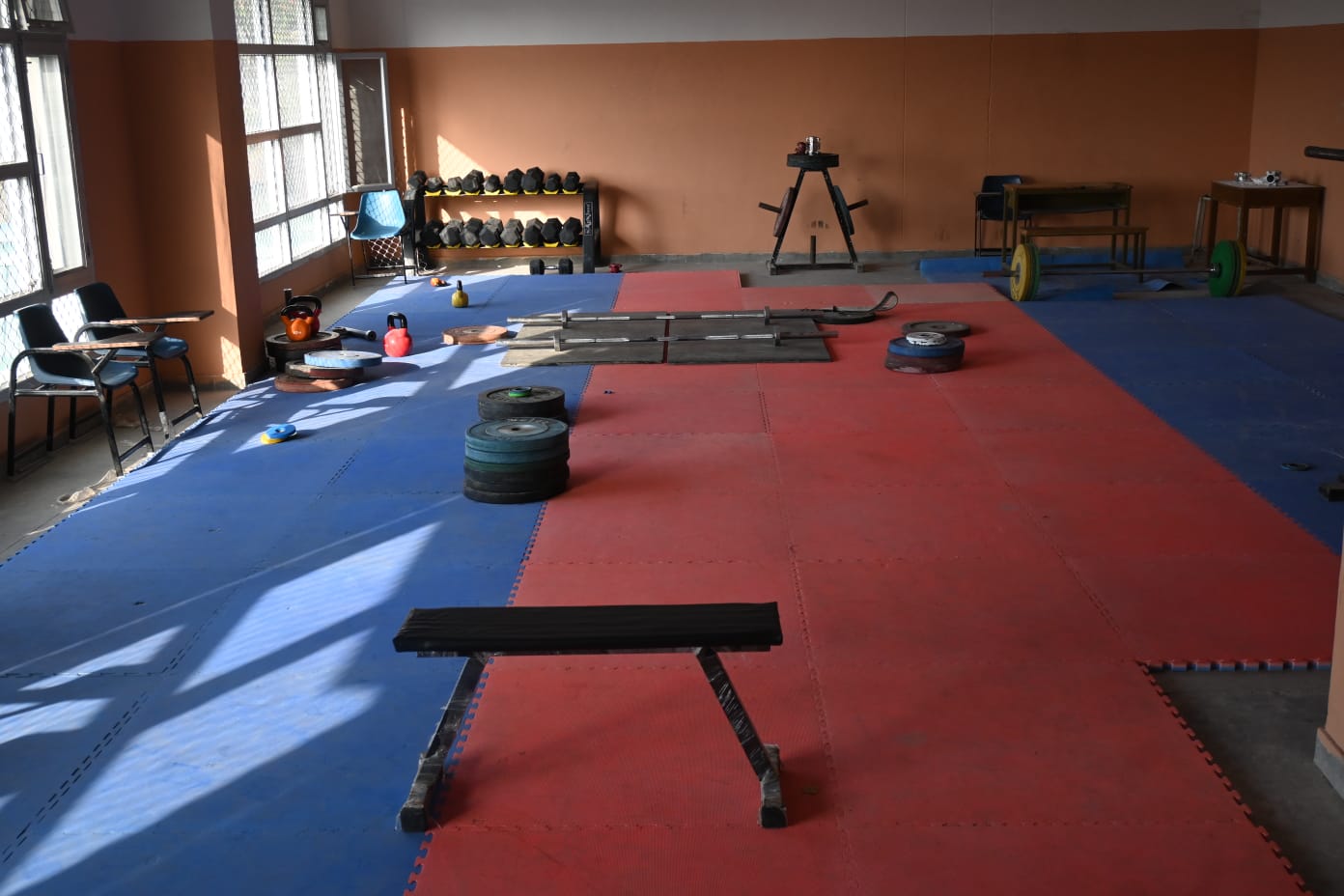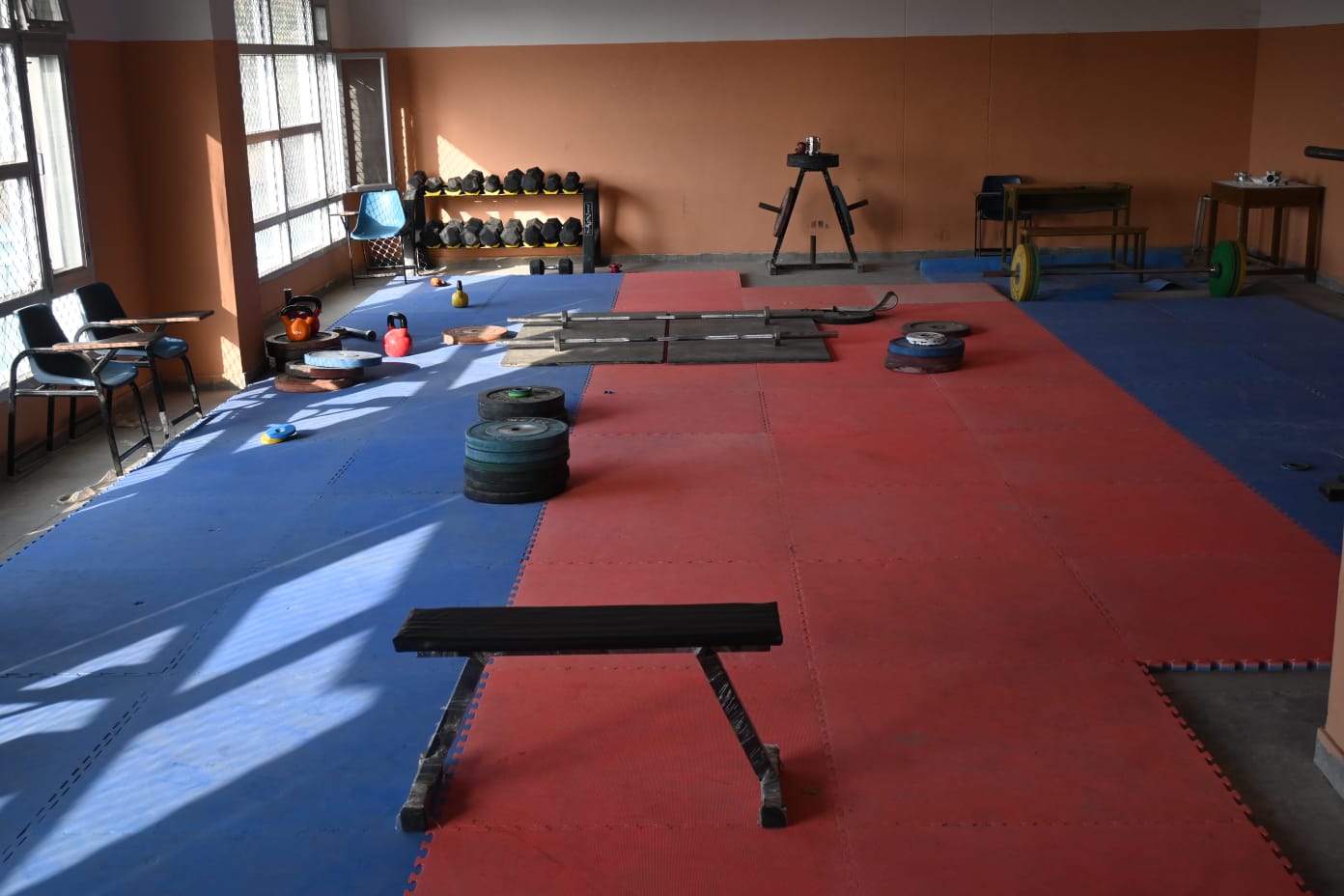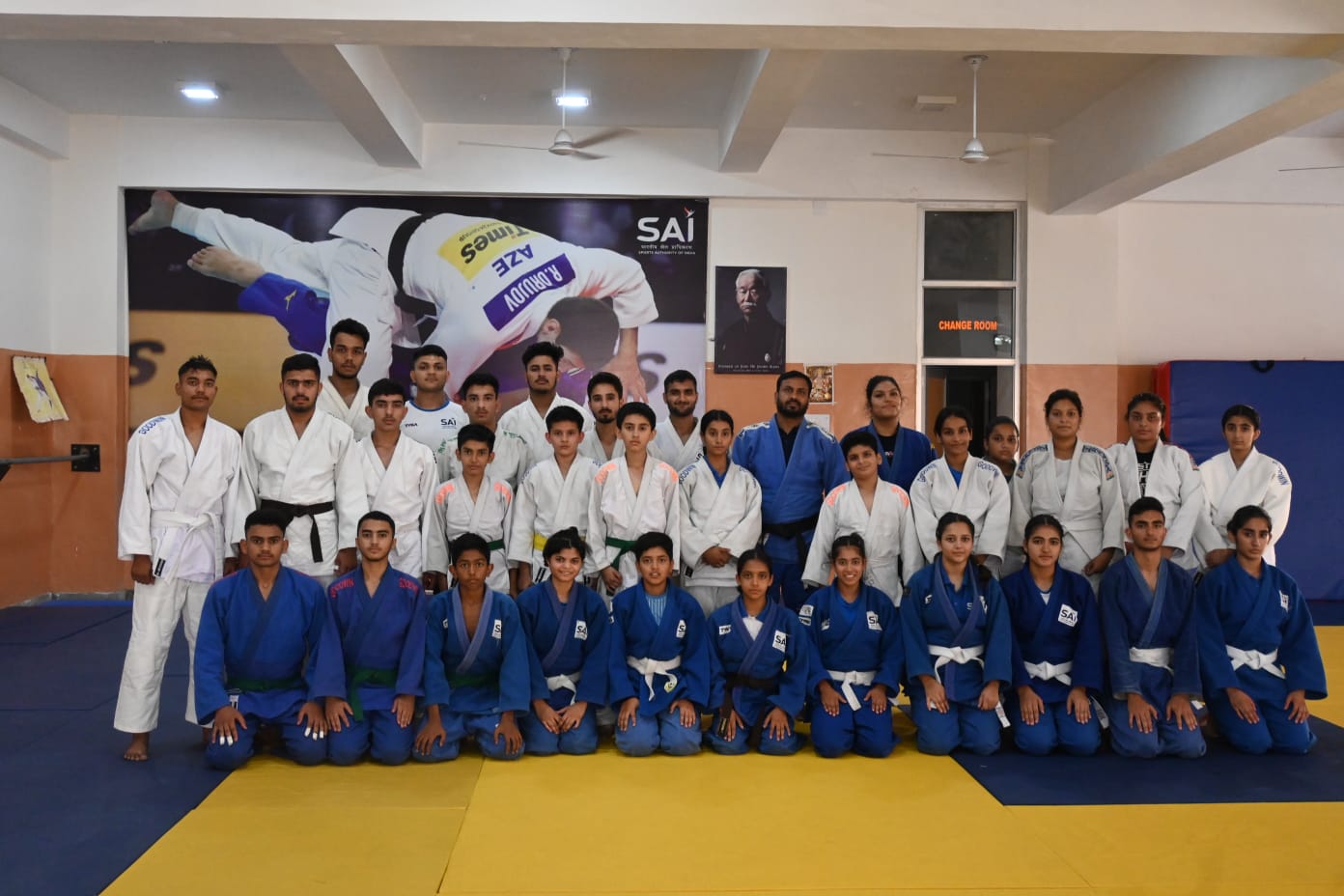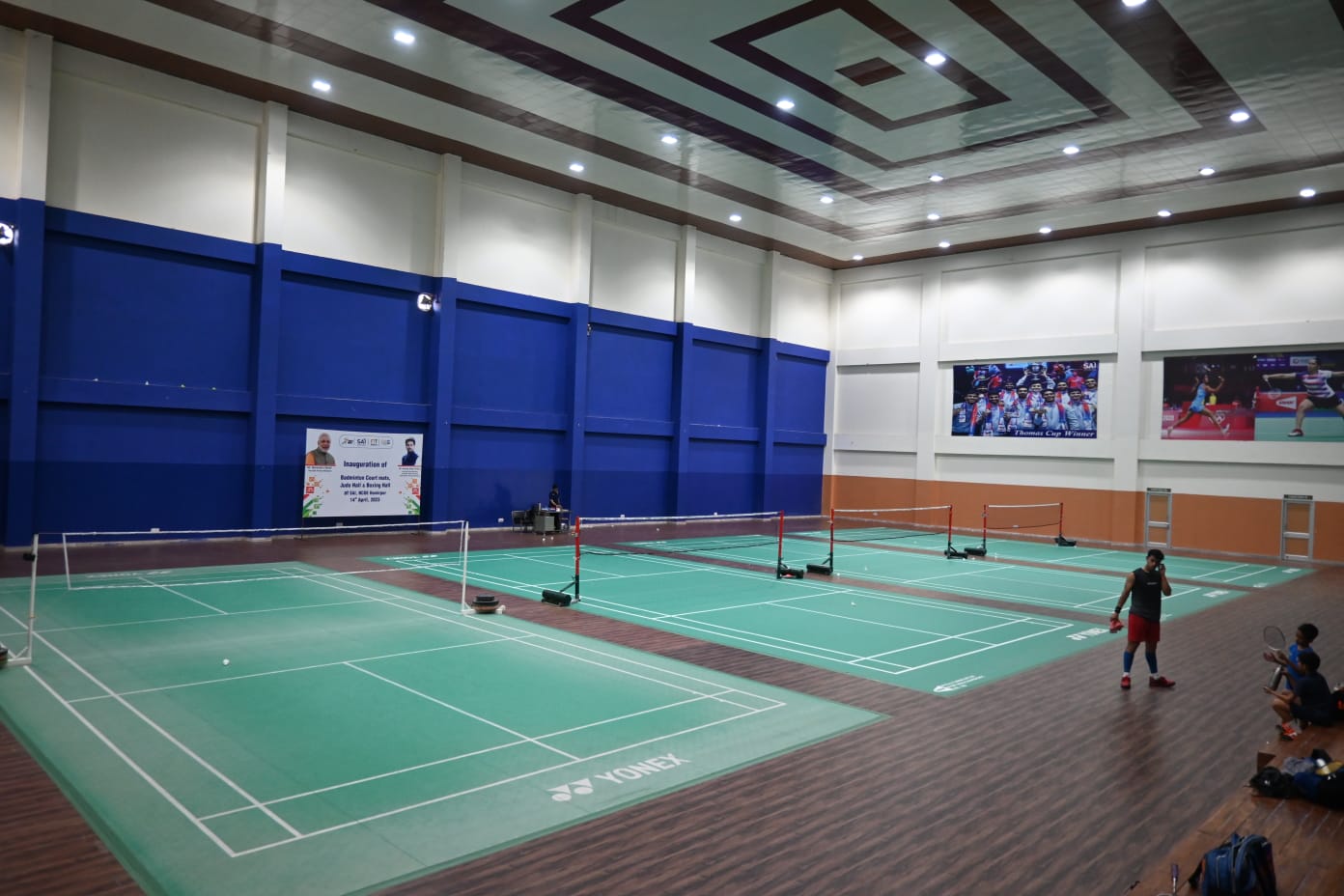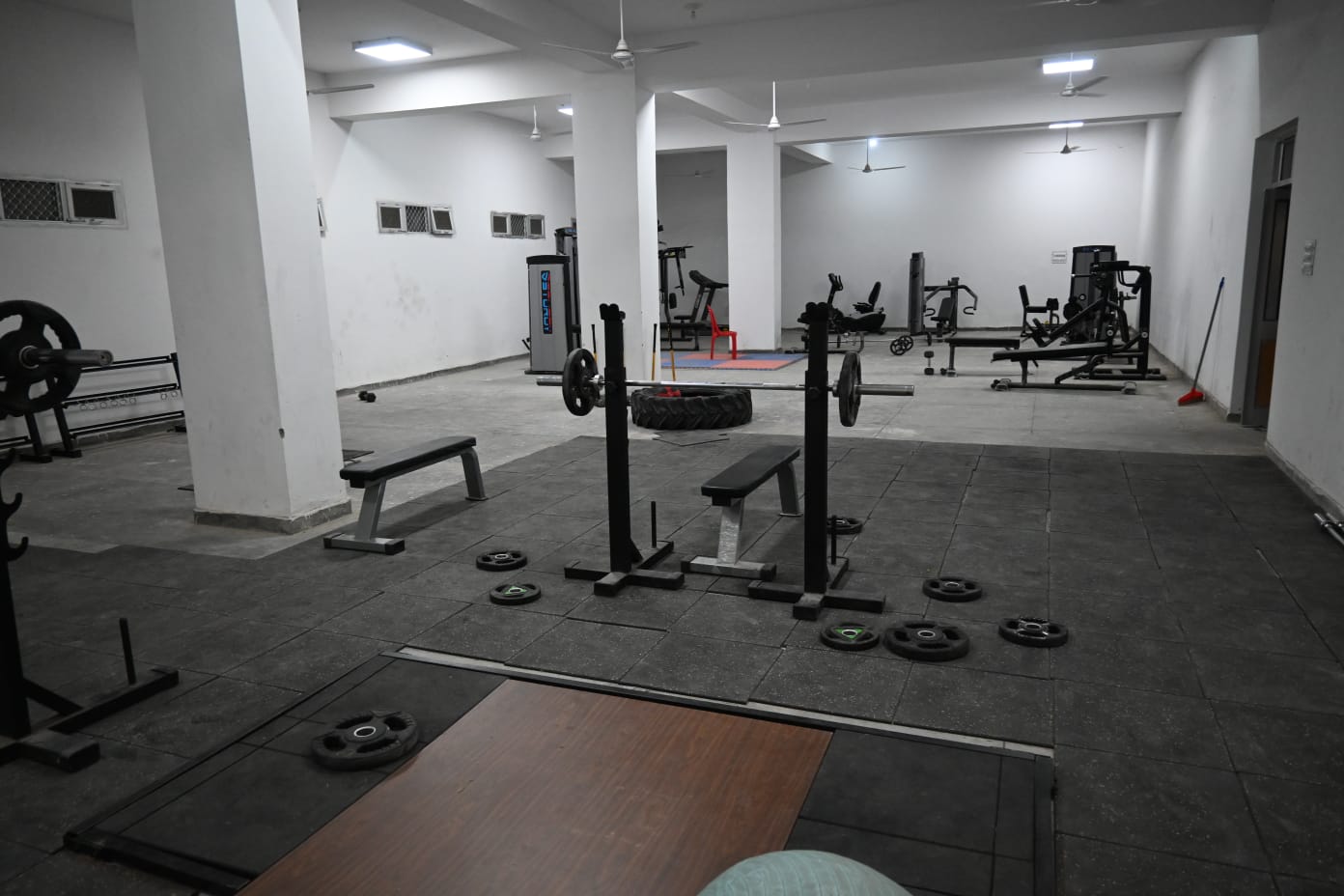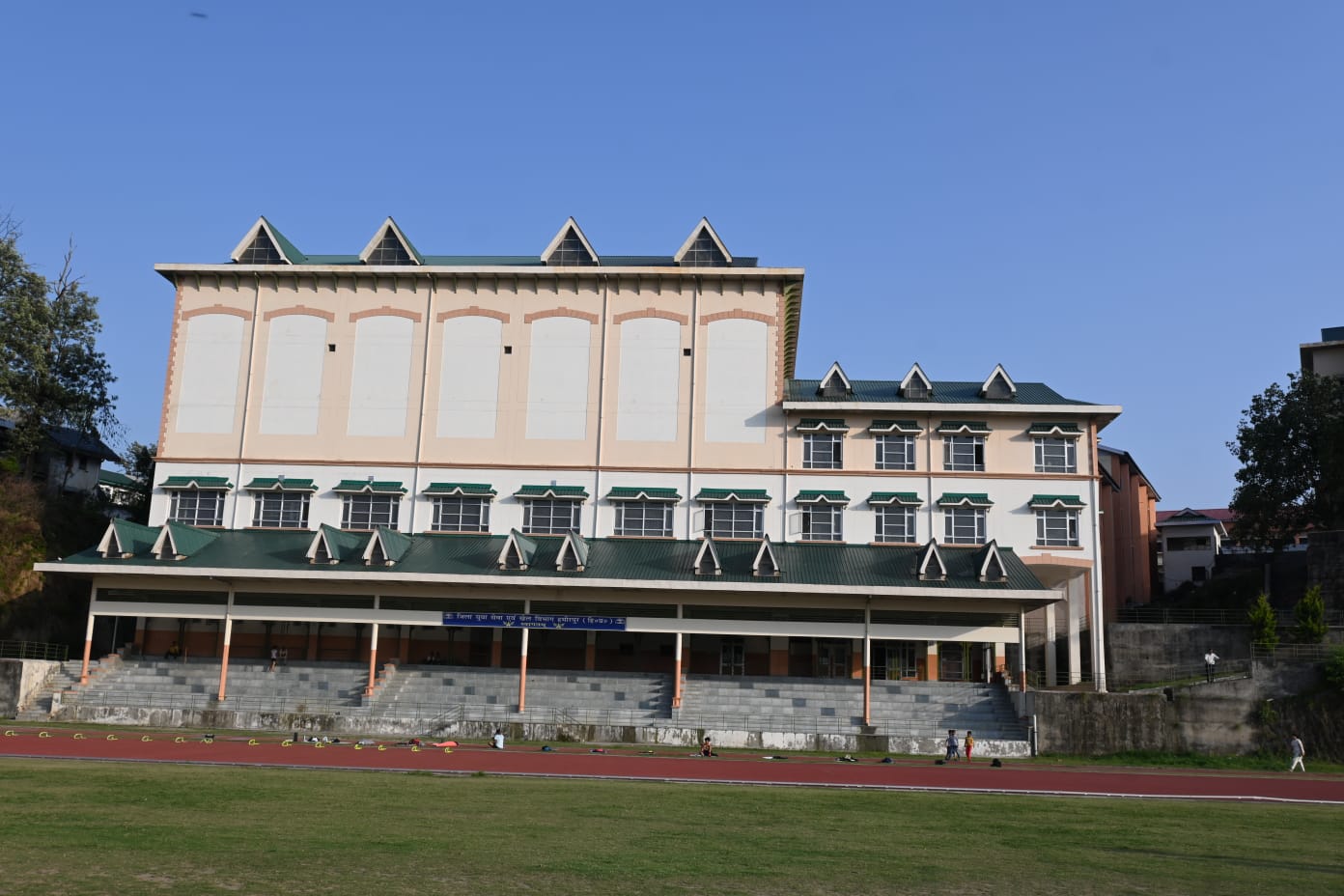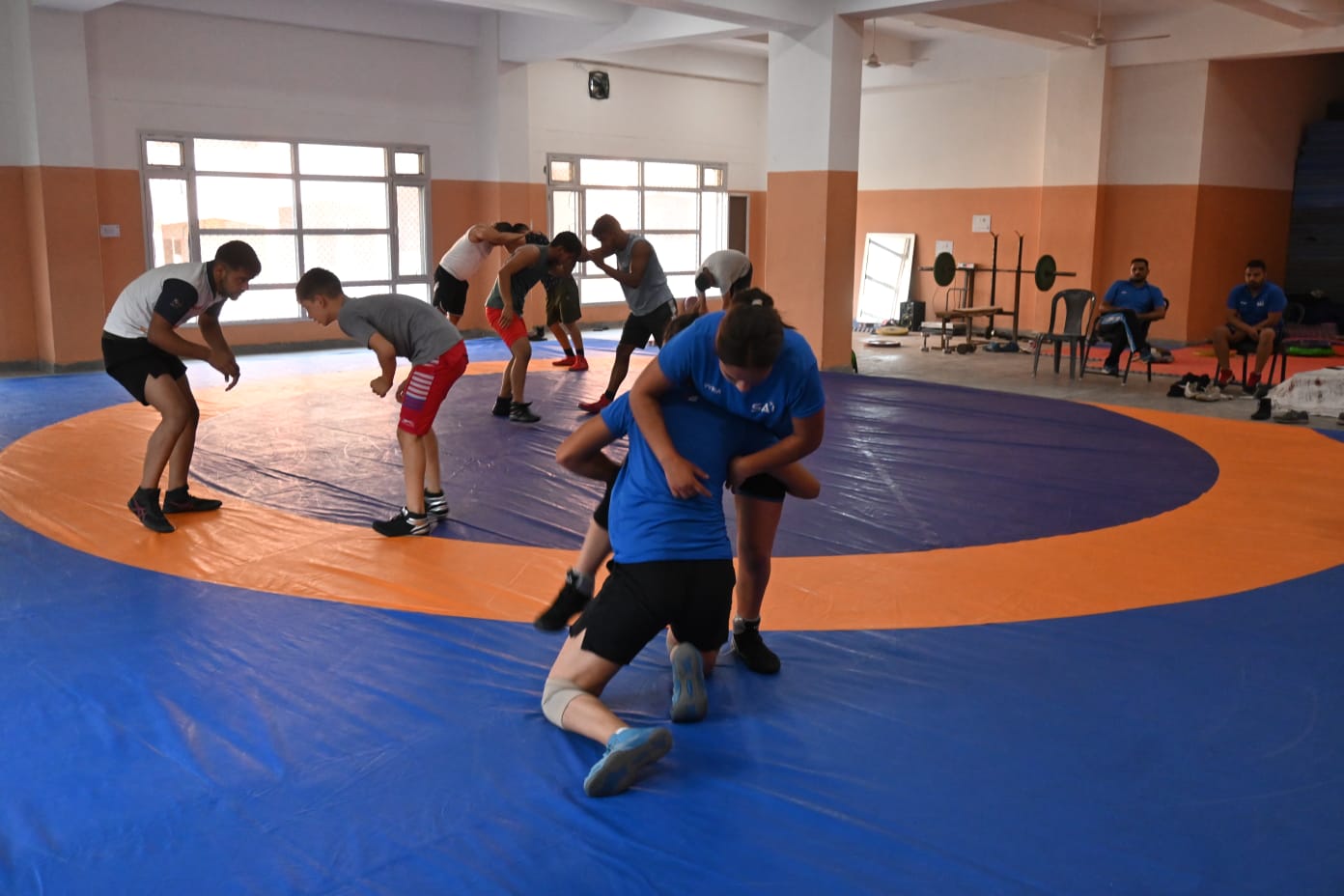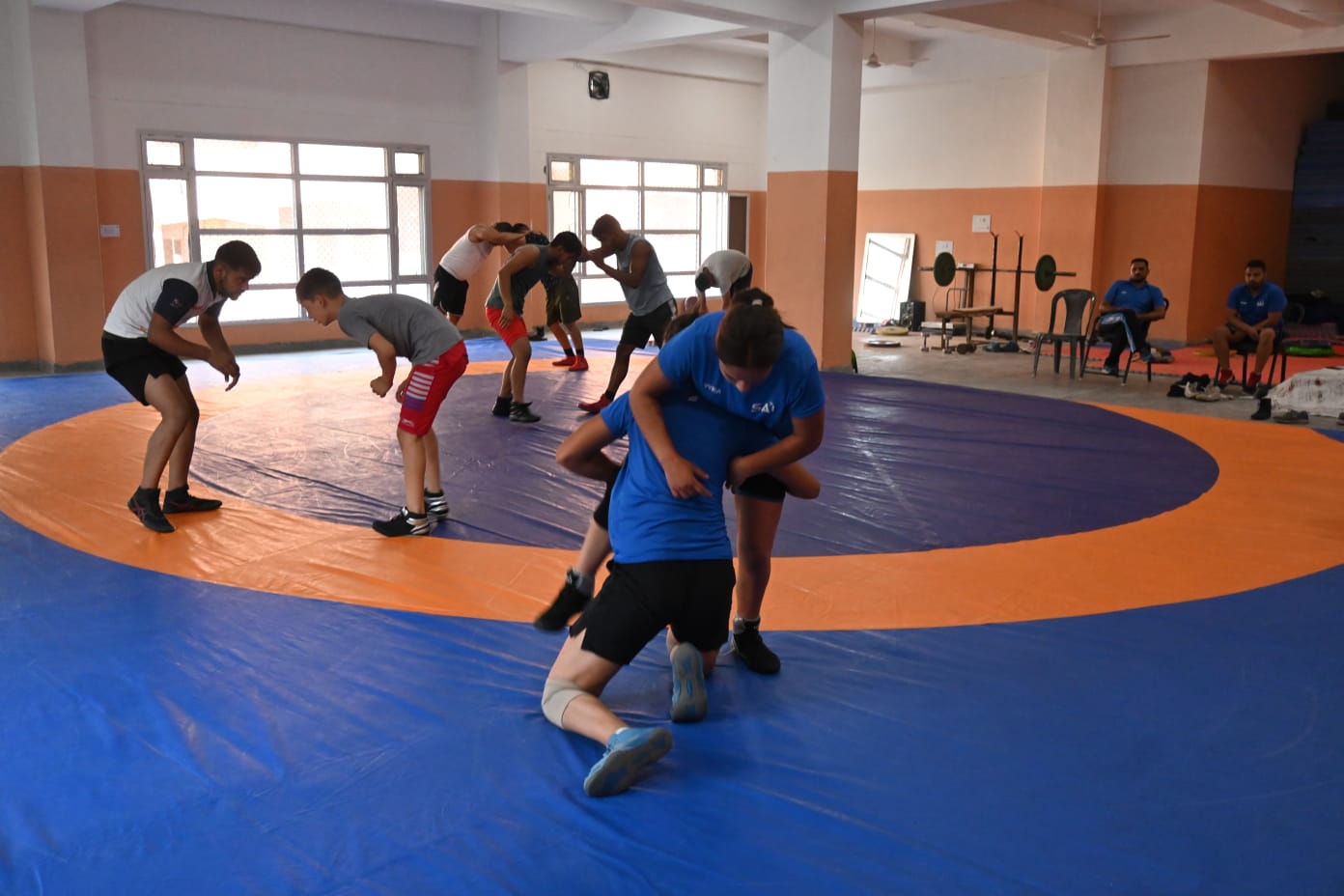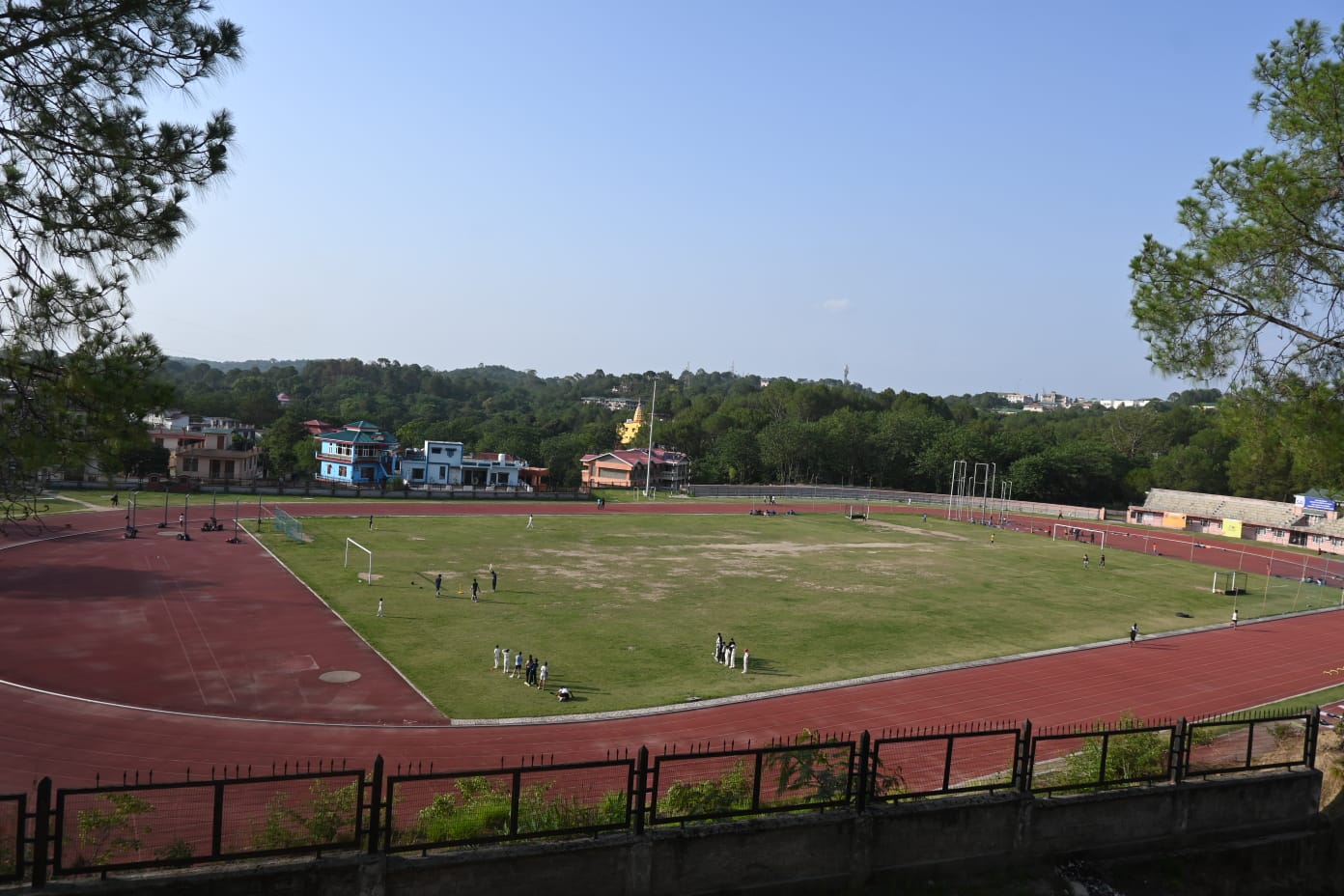Physical Education
Department of Physical Education
- About
- Faculty
- Syllabus
- Subjects
- Course Specific Outcomes
- Time Table
- Infrastructure
- Lab Guidelines
- Achievements
- Activities
- Collaborations
The Department of Physical Education and Sports has consistently brought great distinction and pride to our institution. Our remarkable sporting achievements remain unparalleled by any other educational institution. Over the years, we have nurtured and produced over 100 national-level sports stars, including renowned athletes like Sanjo Devi, Pushpa Thakur, Nutan, Ritta, Manju, Alka, Sumna Devi, Neelam, Jyoti, Dinesh, Vikas, Seema, Bindu, Pankaj Mankotia, Kritika, Manorama, Reeta, Rishu, Kanchan, and many more. Numerous students have proudly represented Himachal Pradesh in national championships and the All-India Inter-University Championships.
Our dedicated approach to sports promotion has consistently led us to secure the HPU Overall Trophy on multiple occasions. From the moment students choose Physical Education as their subject and begin their interactions with the sports department, we prioritize addressing their comprehensive needs and interests. Exceptional performers in athletics or sports at the state, inter-college, or national levels receive special incentives such as financial rewards, hostel accommodations, free sports uniforms and equipment, and other benefits. Fortunately, our ability to attract exceptional talent has remained constant, and when coupled with our robust infrastructure and student support facilities, it has kept us at the forefront.
Notably, our college is the sole institution in Himachal Pradesh with an international-standard 400m synthetic track. Within our campus, a thriving Indoor Sports Hall provides dedicated spaces for boxing, judo, weightlifting, wrestling, and a fully-equipped gymnasium. We have recently added an internationally standard badminton court. The Department is well-equipped with the latest physical education literature and equipment to support our students.
Our college actively participates in the highest number of events/games in HPU inter-college championships, showcasing the highest level of participation compared to other colleges in the state. Our students engage in various sports such as volleyball, badminton, wrestling, cross-country, basketball, football, table tennis, boxing, cricket, weightlifting, athletics, shooting, hockey, judo, kho-kho, kabaddi, and more. Distinguished coaches from the Sports Authority of India and the Himachal Pradesh Sports Department are engaged to provide expert guidance and training. Every year, 30 to 50 of our college’s athletes represent Himachal Pradesh at open national events, and HPU Shimla in Inter-University Championships.
The Department of Physical Education also organizes various intra-mural sports tournaments for college students, with the active participation of more than 2000 students. Additionally, our department’s faculty members serve as technical officials in national, grand prix, and international meets. Moreover, our faculty is qualified as an IAAF level I Athletic coach.
Sr. No. | Name | Designation | Profile |
1. | Dr. Pawan Kumar Verma | Associate Professor | View |
The courses you will learn during this three year course is:
Year | Course Code | Total Lectures | Subject |
First Year | PED101TH |
| Introduction to Physical |
|
|
| |
Second Year |
|
| |
|
|
| |
|
|
| |
Third Year |
|
| |
|
|
| |
|
|
POs | Physical Education Specific Outcomes
|
PO1 | The Bachelor of Physical Education program is designed to professionally prepare individuals for careers as physical education teachers at the high school and senior secondary levels, as well as for positions as Assistant Professors, Directors, and Sports Officers in colleges and universities. The curriculum and syllabus have been meticulously crafted to ensure that each course aligns with one or more of the outcomes related to the skills, knowledge, and behaviors that students acquire as they advance through the program. |
PO2 | Physical Education holds a paramount role as it contributes significantly to the development of both the physical and mental strength of learners. This subject primarily emphasizes practical and hands-on expertise. The syllabus is structured with a core set of main courses, each further subdivided into various curriculum aspects. The program’s outcomes are geared towards fostering long-lasting health and strength in the learners, promoting a healthy and robust life. |
PO3 | The students will be able to know and develop a concept of the history of Physical Education and its importance. Further, they will understand the importance of Physical Education activities for future endeavors in India. |
PO4 | Health promotion: Appropriate physical activity promotes good health and hygiene. A good program improves participant’s muscular strength, flexibility, muscular endurance, body composition (fat-to-muscle ratio) etc. Regular physical activity increases bone density to create a sturdy skeleton. A good program on Physical Education can help children regulate their weight by burning calories, resizing bodies and improving their overall body composition. |
PO5 | Improve leadership Qualities: Quality physical education can influence moral development. Students have the opportunity to assume leadership, cooperate with others and accept responsibility for their own behavior. Ability to function effectively as an individual, and as a member or leader in diverse teams, and in multidisciplinary settings to accomplish a common goal. |
PO6 | Strengthened peer relationships: Physical education can be a major force in helping children socialize with others more successfully. Being able to participate in games and sports is an important part of fitting with the environment one lives in. |
PO7 | Self discipline: A good programme teaches children to follow rules and regulations and to become a responsible citizen in future life. |
PO8 | Earning Money from the various Work-sphere after completing the Physical Education course: After completing this programme Students can work as a physical trainer, teacher, coach, physiotherapist, health checker etc. |
Sno | Course Code with Title | Course Outcomes |
1 | Discipline Specific Course-1A (DSC-1A) Introduction to Physical Education PED101TH | The students will develop knowledge regarding the aims, definitions, scope, and objective of Physical Education. They will also acquire knowledge regarding the importance of Physical Education, and its relation to Education. |
The students will explore the concept of Physical Education in India throughout its historical periods, including Ancient, Medieval, and Modern eras. They will delve into the historical evolution of Physical Education in various phases such as the Vedic period, Hindu period, Medieval period, and British period. Furthermore, they will gain insights into the post-independence development of Physical Education in India. This paper introduces the foundational idea of physical education. In essence, it equips most students with a profound understanding of the significance of physical education in their lives. The paper also addresses the common misconceptions and the contemporary perspectives regarding this subject. | ||
2 | Discipline Specific Course-1B (DSC1B) Olympic Movement and Organization of Tournaments PED102TH | The students will acquire knowledge about Physical Education in Ancient Greece, Sparta, Athens, and Rome. They will also learn and gain knowledge of Ancient Olympics and Modern Olympics, Olympic Flag, Olympic torch, Olympic Oath, Olympic Emblem, IOC, IOA, National Games of India, Commonwealth Games, Asian Games, and SAF games. |
The students will gain knowledge about Physical Education in the modern world and major contributed institutions in the field. They will also learn about various schemes and awards in the field of Physical Education and Sports. | ||
Students will learn about the Olympic Movement and based on this they can organize sports events at state and national level. | ||
3 | Discipline Specific Course-1A (Practical) {DSC-1A(PR)} Athletics and Game-1 PED101PR | Athletics is known as the mother of all Games and Students will learn about the 1. Athletics i) Event (Shot put and Long jump): (a) Introduction of events and brief history. (b) Basic skills and techniques. (c) IAAF rules and regulations. (d) Equipment required for the event. (e) No. of officials required and duties of officials. (f) Techniques of the event. (g) Teaching stages of the event. (h) Preparation and filling of the score sheet. (i) Marking of the shot put/long jump field. 2. Game ii) Badminton/Weightlifting: (Any one) (a) History of the game. (b) Measurement and preparation of the playfield. (c) Equipment required for the game. (d) Fundamental skills and lead-up games. (e) Techniques, strategies and system of play. (f) Rules and regulations of the game. (g) National and International tournaments associated with the game. (h) Team/Individual records (World, Olympic, Asian and National Level) of the game. (i) Awards associated with the game. (j) Knowledge of score sheets. (k) Signals of officiating |
4 | Discipline Specific Course –1B (Practical) {DSC-1B(PR)} Athletics and Game-2 PED102PR | This course will help students to know about the: 1. Athletics i) Event (Sprints): (a) Introduction of events and brief history. (b) Basic skills and techniques. (c) IAAF rules and regulations. (d) Equipment required for the event. (e) No. of officials required and duties of officials. (f) Techniques of the event. (g) Teaching stages of the event. (h) Preparation and filling of the score sheet. (i) Marking of the track.
2. Game ii) Basketball/Table Tennis: (Any one) (a) History of the game. (b) Measurement and preparation of the playfield. (c) Equipment required for the game. (d) Fundamental skills and lead-up games. (e) Techniques, strategies and system of play. (f) Rules and regulations of the game. (g) National and International tournaments associated with the game. (h) Team/Individual records (World, Olympic, Asian and National Level) of the game. (i) Awards associated with the game. (j) Knowledge of score sheets. (k) Signals of officiating. |
5 | Discipline Specific Course-1C (DSC1C) Human Anatomy and Physiology PED201TH | The students will develop an understanding of the structure of various organs and organ systems of the human body whereby they will be able to understand the changes that happen to the body structures as a result of exercise and training.
|
The students will develop an understanding of the organization, microscopic structure, characteristics and functions of skeletal muscles. They will also learn the organization characteristics and functions of bones. Further the students will understand the classification of joints. | ||
The students will develop an insight of the organs that comprise the circulatory system and respiratory system. Further they will learn about the structure of the heart as well as lungs. Also they will understand the composition of blood. | ||
The students will develop an idea about the organs that comprise the digestive system. Also they will learn about the structure of the stomach, small intestine and large intestine. Further students will gain knowledge about the structure of neuron, brain and kidney. They will further enhance their knowledge about the organization of the nervous system. | ||
The students will understand the functioning of various organs and organ systems of the human body whereby they will be able to understand the changes in the body functioning as a result of exercise and training. | ||
6 | Discipline Specific Course-1C (Practical) {DSC-1C(PR)} Athletics and Game-3 PED201PR | 1. Athletics i) Event (High jump and Javelin): (a) Introduction of event and brief history. (b) Basic skills and techniques. (c) IAAF rules and regulations. (d) Equipment required for the event. (e) No. of officials required and duties of officials. (f) Techniques of the event. (g) Teaching stages of the event. (h) Preparation and filling of the score sheet. (i) Marking of the shot high jump/javelin field. 2. Game ii) Handball/Boxing: (Any one) (a) History of the game. (b) Measurement and preparation of the playfield/arena. (c) Equipment required for the game. (d) Fundamental skills and lead-up games. (e) Techniques, strategies and system of play. (f) Rules and regulations of the game. (g) National and International tournaments associated with the game. (h) Team/Individual records (World, Olympic, Asian and National Level) of the game. (i) Awards associated with the game. (j) Knowledge of score sheets. (k) Signals of officiating. |
7 | Discipline Specific Course-1D (DSC1D) Sports Psychology PED202TH | This course will help in understanding the behavior of sportspeople and its effect on sports performance. This will also increase their tenacity. |
8 | Discipline Specific Course -1D (Practical) {DSC-1D(PR)} Athletics and Game-4 PED202PR | 1. Athletics i) Event (Discus throw and Triple jump): (a) Introduction of events and brief history. (b) Basic skills and techniques. (c) IAAF rules and regulations. (d) Equipment required for the event. (e) No. of officials required and duties of officials. (f) Techniques of the event. (g) Teaching stages of the event. (h) Preparation and filling of the score sheet. (i) Marking of the discus throw/triple jump field. 2. Game ii) Hockey/Judo: (Any one) (a) History of the game. (b) Measurement and preparation of the playfield/arena. (c) Equipment required for the game. (d) Fundamental skills and lead-up games. (e) Techniques, strategies and system of play. (f) Rules and regulations of the game. (g) National and International tournaments associated with the game. (h) Team/Individual records (World, Olympic, Asian and National Level) of the game. (i) Awards associated with the game. (j) Knowledge of score sheets. (k) Signals of officiating. |
9 | Skill Enhancement Course-1 (SEC-1) Sports Medicine, Physiotherapy and Rehabilitation PED203TH | This course will help in understanding the pros and cons of the usage of the medicine and know about the adverse effect of doping. Besides this students will understand the primary responsibilities the sports trainer has in preventing sports injuries and providing initial care for injured athletes different injuries, their cause, treatment and precautions and rehabilitation of the injury. It also Demonstrates the basics of sport first aid during and after game situations. |
10 | Skill Enhancement Course-2 (SEC-2) Sports Training PED204TH | 1. Understand training as performance based science 2. Explain different means and methods of various training 3. Prepare training schedule for various sports and games 4. Appraise types of periodization for performance development 5. Create various training facilities and plans for novice to advanced performers. |
11 | Skill Enhancement Course-3 (Practical) {SEC-3(PR)} a) Specialization in Volleyball PED 301PR b) Specialization in Football PED 302 PR c) Specialization in Kabaddi PED 303PR. | 1. History of game, measurement and preparation of the play field and equipment required for the game. 2. Fundamental skills and lead-up games. 3. Techniques, strategies and method of play. 4. Rules and regulations of the game. 5. National and International tournaments associated with the game. 6. Team/Individual records (World, Olympic, Asian and National Level) of the game. 7. Awards associated with the game. 8. Duties of the officials. 9. Technical Equipment for officiating. 10. Knowledge of the score sheets. 11. Signals of officiating. 1. General and specific warming-up and cooling down. 2. Long-term and short-term preparation for the decisive volleyball competitions. 3. Psychological qualities and preparation of a volleyball player. 4. Offensive, defense system in play, service and reception pattern. 5. Individual, group and team tactics. 6. Diet and nutrition for a volleyball player. 7. Coordination among the manager, coach, doctor, psychologist and players. 1. Teaching volleyball skills. 2. Preparing a lesson plan. 3. Specific training methods for different playing positions. |
12 | Skill Enhancement Course-4 (Practical) {SEC- 4(PR)} Specialization in Athletics PED304PR | 1. Introduction to athletics. 2. Historical development of athletics, Ancient Olympics and Modern Olympics games. 3. Historical review of track and field with special reference to India. 4. National and International level athletics championships: Olympic Games, Asian games, World Athletics, World Championship, Commonwealth Games, National Games, Open National, Youth National and Inter-Universities athletics championships. 1. Athletic track and its types. 2. Procedure and methods to mark the track (200m, 400m). 3. Marking and construction of Shot Put, Discus Throw, Javelin throw and Hammer throw arena. 4. Specification and construction of Long Jump, Triple Jump high jump and pole vault pit/runways etc. 5. Selected National and International personalities in athletics. 6. Need, importance and procedure of Warming-up and Cooling down. 7. First aid and rehabilitation of athletics injuries. 1. Track Events: Brief background, technique, training and important motor components of the following track events: i) Sprints races: 100m, 200m, 400m; Hurdle Races: High Hurdle and Low Hurdle and Steeple Chase. ii) Middle and Long Distance Races; Combined Events: Decathlon and Heptathlon; Relay Races and Marathon. 2. Fields Events: Brief background, technique, training and important motor components of the following field events: i) Shot put, Discus throw, Javelin throw and Hammer Throw. ii) Long Jump, Triple Jump, High Jump and Pole vault. 1. Technical training and practice of following events: i) Sprints Starting techniques, finishing techniques. ii) Shot put, Discus throw and Javelin throw ( Basic Teaching Stages) iii) Long Jump, Triple Jump High Jump and Pole vault( Basic Teaching Stages) iv) Record files, calculations of straight, radius and staggers of standard tracks. v) Relays: Holding of the baton and various types of baton exchange (visual and non-visual). |
13 | Discipline Specific Elective-1A (DSE1A) Recreation PED305TH Or Any One Kinesiology and Biomechanics PED306TH | The students will develop comprehensive knowledge concerning kinesiology and its importance in physical education and sports. They will learn the fundamental mechanical concepts and basic physiological perceptions involved in the field of kinesiology. The students will also acquire knowledge about location, origin, insertion and actions of major muscles in the human body. |
14 | Discipline Specific Elective-1B (DSE1B) Methods of Teaching in Physical Education PED307TH Or Officiating and Coaching PED308 | Upon completion of this course, students will gain a comprehensive understanding of the meaning and significance of teaching methods in Physical Education. They will also acquire knowledge regarding the principles underlying teaching methods, various teaching approaches, and the factors that influence these methods.
Furthermore, students will develop a profound grasp of coaching and officiating, recognizing their pivotal roles and importance in the field. They will also acquire knowledge about the principles of officiating, the qualities and qualifications expected of coaches and officials. Additionally, they will learn about coaching philosophy, methodologies, and the processes involved in coaching, equipping them with the skills to effectively officiate in competitive events.
|
15 | Generic Elective-1 (GE-1) Health Education and Nutrition PED309TH | The students will develop understanding and knowledge regarding Definition of Health, Health Education, Health Instruction, and Health Supervision. Students will learn about aims, objectives and principles of health Education, health service and guidance and instruction in personal hygiene. The students will understand the objectives of school health services, the role and importance of health education in schools, and environmental hygiene for schools. The students will develop knowledge about the meaning of disease cycle, epidemiological triad, methods of disease transmission direct method and indirect method, they will also develop awareness about personal hygiene care of skin, care of hair and nails, care of eyes and care of teeth. Students will evaluate the impact of health conditions on their training and practical sessions. They will also explore nutrition recommendations tailored to athletes and sports-specific diets that can optimize sports performance. |
16 | Generic Elective-2 (GE-2) Yoga PED310TH | Yoga is one of the ancient physical fitness practices, which have been long introduced from the ancient period. These practices mainly control the mind setup and physical, anatomical pleasure and strangeness of every person. The entire syllabus provides the main topic like meaning, definition, term of Yoga, Types of Yoga, and objectives of Yoga etc. This syllabus also made some sections of Yoga education through these sub topics like History of Yoga, Ashtanga Yoga and Hatha Yoga. Surya namaskar, Pranayam and Sudhi kriyas seem to be very beneficial for students and are practiced under expert’s supervision. |
Students Achievements:-
| S.No. | Session | Meeting/Activity |
| 1 | 2023-24 | HPU Inter College Badminton Women Tournament Report |
| 2 | 2023-24 | Inter-College-Basketball-Tournament.pdf |
| 3 | 2023-24 | Shooting-Championship |
| 4 | 2023-24 | Report on Kho-Kho-Report |
| 5 | 2023-24 | Report on Women wrestling-competition |
| 6 | 2023-24 | Report on Inter College Taekwondo Championship |
| 7 | 2023-24 | Report on Inter College Judo Championship |
| 8 | 2023-24 | Inter College Chess Championship |
MoUs signed


